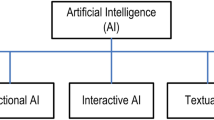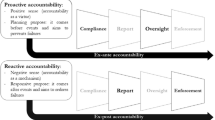Abstract
When developing the intelligence support systems designed for the crew of anthropocentric objects that recommend a method of solving the arising tactical-level problem for the crew (real-time targeting + construction of a method for attaining a real-time assigned target of functioning), it is extremely important to adequately understand the subject domain of the database of such systems. One way to accomplish this is to use dynamic fragments of problematic subsituations in a knowledge database with intelligence agents incorporated into them. The general structure of intelligence agents used in the knowledge databases of onboard teal-time advisory expert systems for the typical situations of the functioning of anthropocentric objects is given from the viewpoint of the “Stage” conceptual model of an anthropocentric object. Certain intelligence agents and their use in the knowledge database of a certain onboard real-time advisory expert system for the typical situation of the functioning of anthropocentric objects are considered as an example.





Similar content being viewed by others
REFERENCES
B. E. Fedunov, “Model “Stage” for the development of image-board intelligent systems of anthropocentric objects,” Ontol. Proektir., No. 2 (4), 36–43 (2012).
B. E. Fedunov, On-Board Tactical-Level Intelligent Systems for Anthropocentric Objects (Examples for Manned Aircraft) (De Libri, Moscow, 2018) [in Russian].
V. I. Gorodetskii, “Self-organizing network of agents—the basic model of group and cooperative behavior of autonomous objects,” in Proceedings of the Conference on Artificial Intelligence: Problems and Solutions (Moscow, 2018), pp. 9–16.
V. V. Andreev, S. V. Bratishchev, V. A. Vittikh, K. V. Ivkushkin, I. A. Minakov, G. A. Rzhevskii, A. V. Safronov, and P. O. Skobelev, “Methods and tools for designing open multiagent systems for supporting decision-making processes,” J. Comput. Syst. Sci. Int. 42, 122 (2003).
M. A. Demkin, O. N. Pankratov, and B. E. Fedunov, “Approximate mathematical model of the air-to-air rocket for real-time calculation of the characteristic ranges of its flight,” Mekhatronika, No. 9, 30–36 (2001).
T. Saati and K. Kearns, Analytical Planning: The Organization of System (Elsevier, Amsterdam, 1985).
Author information
Authors and Affiliations
Corresponding author
Additional information
Translated by E. Glushachenkova
Rights and permissions
About this article
Cite this article
Fedunov, B.E. Artificial Intelligence Agents in the Knowledge Databases of Onboard Real-Time Advisory Expert Systems for the Typical Situations of the Functioning of an Anthropocentric Object. J. Comput. Syst. Sci. Int. 58, 932–944 (2019). https://doi.org/10.1134/S1064230719040051
Received:
Revised:
Accepted:
Published:
Issue Date:
DOI: https://doi.org/10.1134/S1064230719040051




